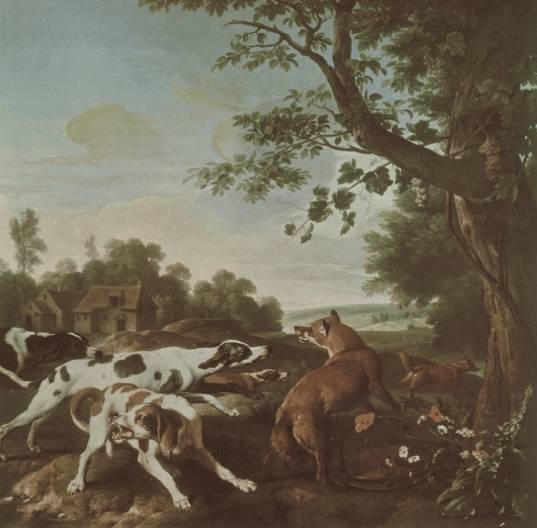Research
Foxes: control, hunting and economics
Foxhunting in the UK illustrates many of the social complexities surrounding attitudes to pest species and to hunting. The acceptability of foxhunting and other control methods depends on foxes’ economic impact and on other aspects of their value, including hunting for sport. Attitudes differ markedly between rural and urban people: in cities people are less tolerant of killing foxes, particularly if the motivation is sport. The economics of fox control suggest that its rationality from a purely monetary perspective depends on the type of landholding. Mounted hunting, of the form illegal since 2005, continues to provoke heated debate, which centres on the ethics of the legitimate use of mammals. The interdisciplinarity necessary for understanding arguments about foxhunting, and the incommensurable quality of the different elements that must be considered, have instructive parallels with human–predator conflicts worldwide.
David W. Macdonald
Paul J. Johnson
References
Macdonald DW, Loveridge AJ, editors. 2010. The Biology and Conservation of Wild Felids. Oxford University Press, Oxford.
Rushton SP, Shirley MDF, Macdonald DW, Reynolds JC. 2006. Effects of culling fox populations at the landscape scale: a spatially explicit population modelling approach. Journal of Wildlife Management 70:1102-1110.
Macdonald DW, Reynolds JC, Carbone C, Mathews F, Johnson PJ. 2003. The bioeconomics of fox control. Pages 220-236 in Tattersall FH, and Manley WJ, editors. Conservation and Conflict: Mammals and Farming in Britain. Linnean Society Occasional Publication, Westbury Publishing, Yorkshire.
Macdonald DW, Johnson PJ. 2003. Farmers as conservation custodians: links between perception and practice. Pages 2-16 in Tattersall FH, and Manley WJ, editors. Conservation and Conflict: Mammals and Farming in Britain. Linnean Society Occasional Publication, Westbury Publishing, Yorkshire.
Aebischer N, Baker SE, Johnson PJ, Macdonald DW, Reynolds JC. 2003. Hunting and fox numbers in the United Kingdom. Nature 423:400.
Macdonald DW, Tattersall FH, Johnson PJ, Carbone C, Reynolds J, Langbein J, Rushton SP, Shirley M. 2000. Managing British mammals: Case Studies from the Hunting Debate. Oxford.
Macdonald DW, Johnson PJ. 2000. Farmers and the custody of the countryside: trends in loss and conservation of non-productive habitats 1981-1998. Biological Conservation 94:221-234.
BBaker SE, Macdonald DW. 2000. Foxes and foxhunting on farms in Wiltshire: a case study. Journal of Rural Studies 16:185-201.
Macdonald DW, Johnson PJ. 1996. The impact of sport hunting: a case study. Pages 160-207 in Dunstone N, and Taylor VL, editors. The exploitation of mammal populations: 1994 Symposium of the Zoological Society of London. Chapman & Hall, London.
Macdonald DW 1987. Running with the Fox. Unwin Hyman, London.
Macdonald DW. 1984. A questionnaire survey of farmers’ opinions and actions towards wildlife on farmlands. Pages 171-177 in Jenkins D, editor. ITE Symposium No. 13: Agriculture and the environment.
Macdonald DW, Bunce RGH, Bacon PJ. 1981. Fox Populations, Habitat Characterization and Rabies Control. Journal of Biogeography 8:145-151.
Macdonald DW, Carr GM. 1981. Foxes beware: you are back in fashion. New Scientist 89:9-11.
-
 Desportes, 1720
Desportes, 1720





